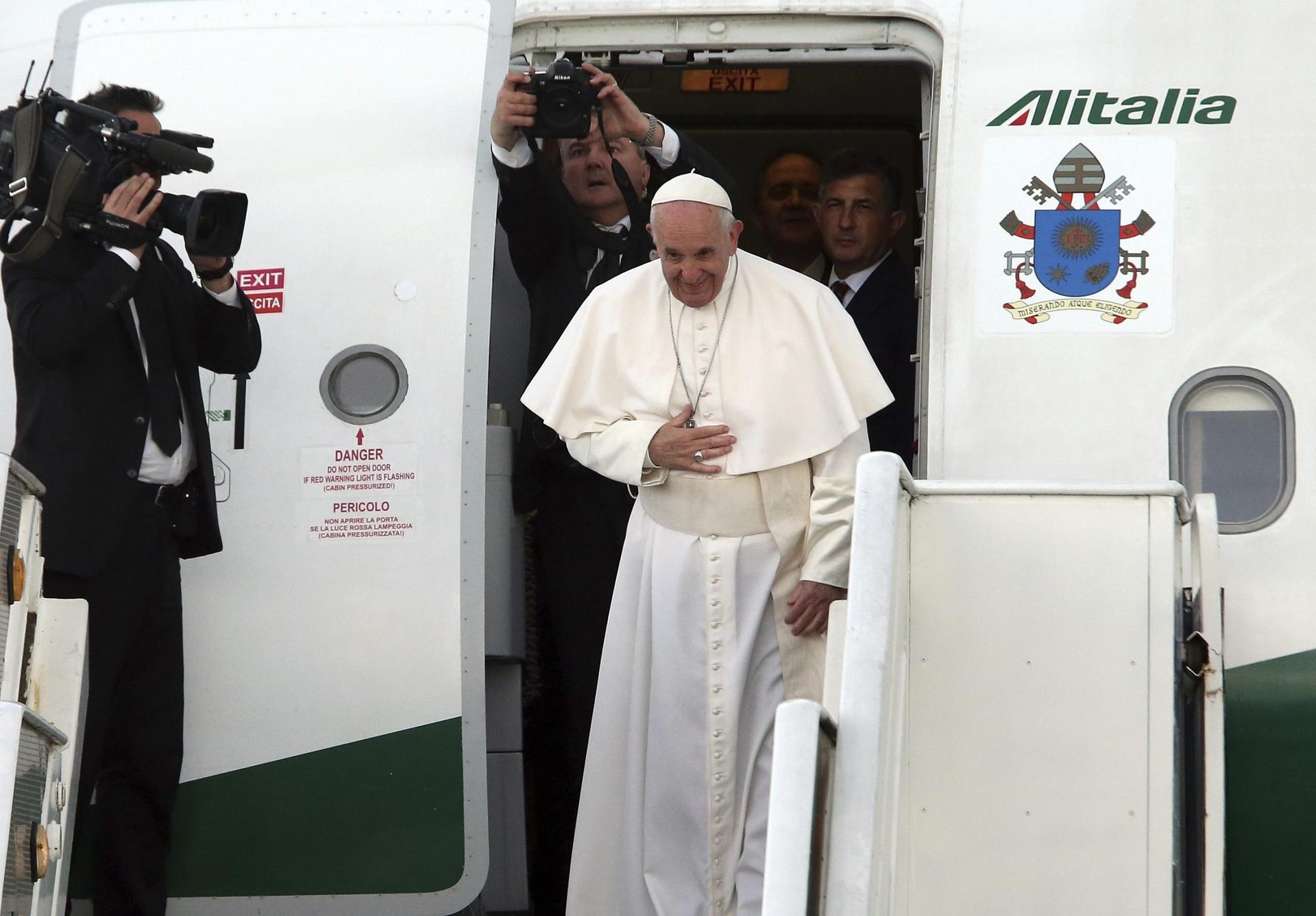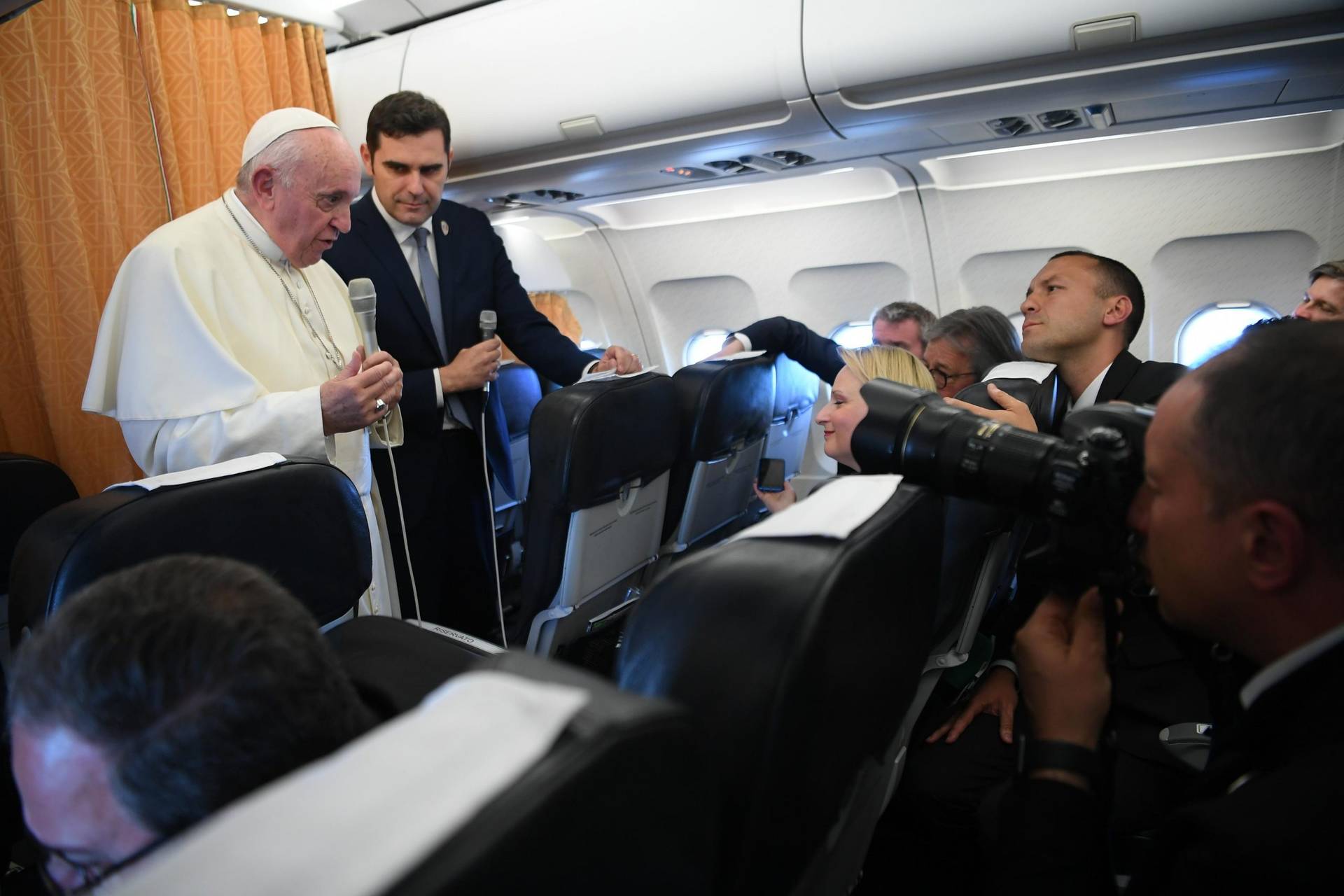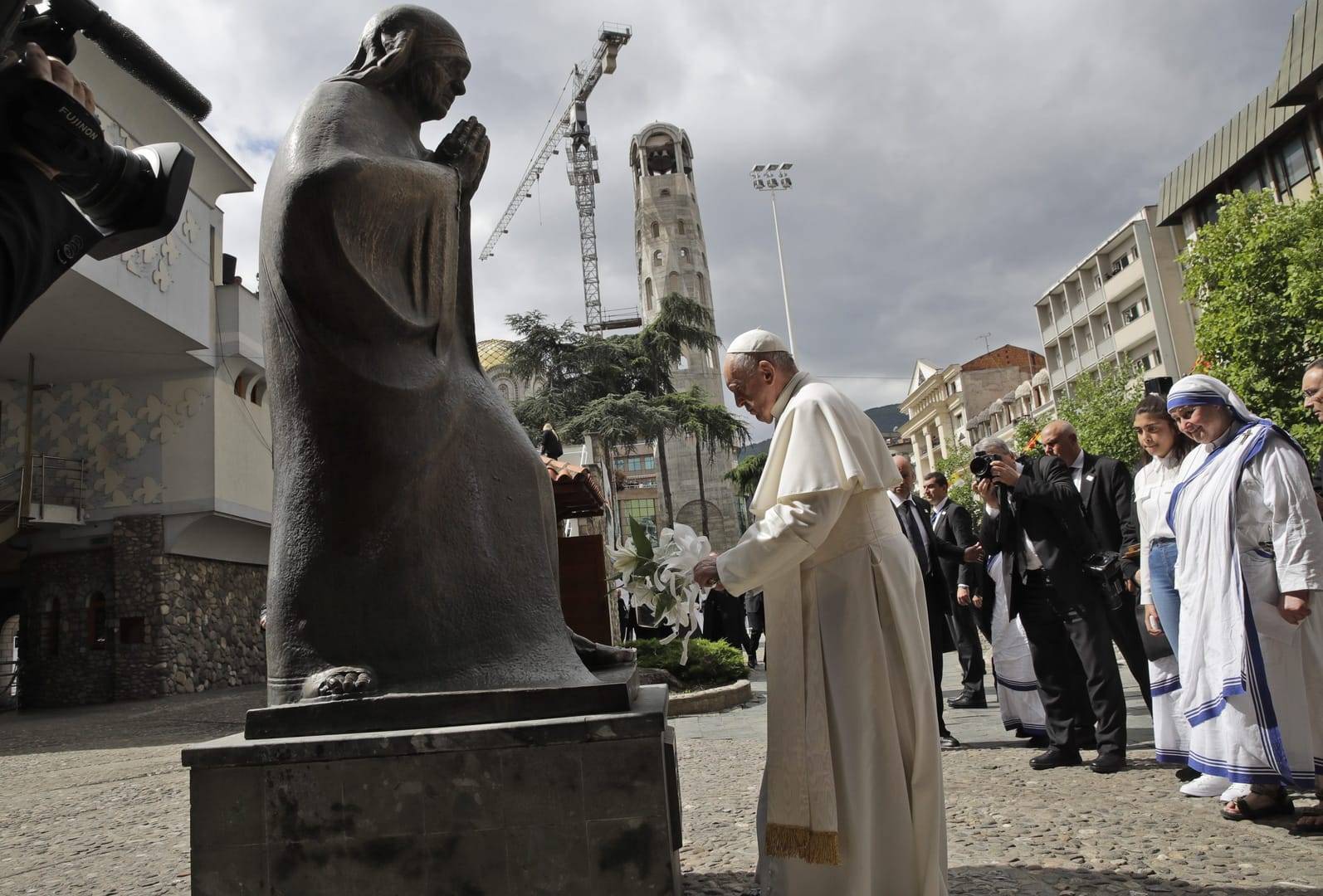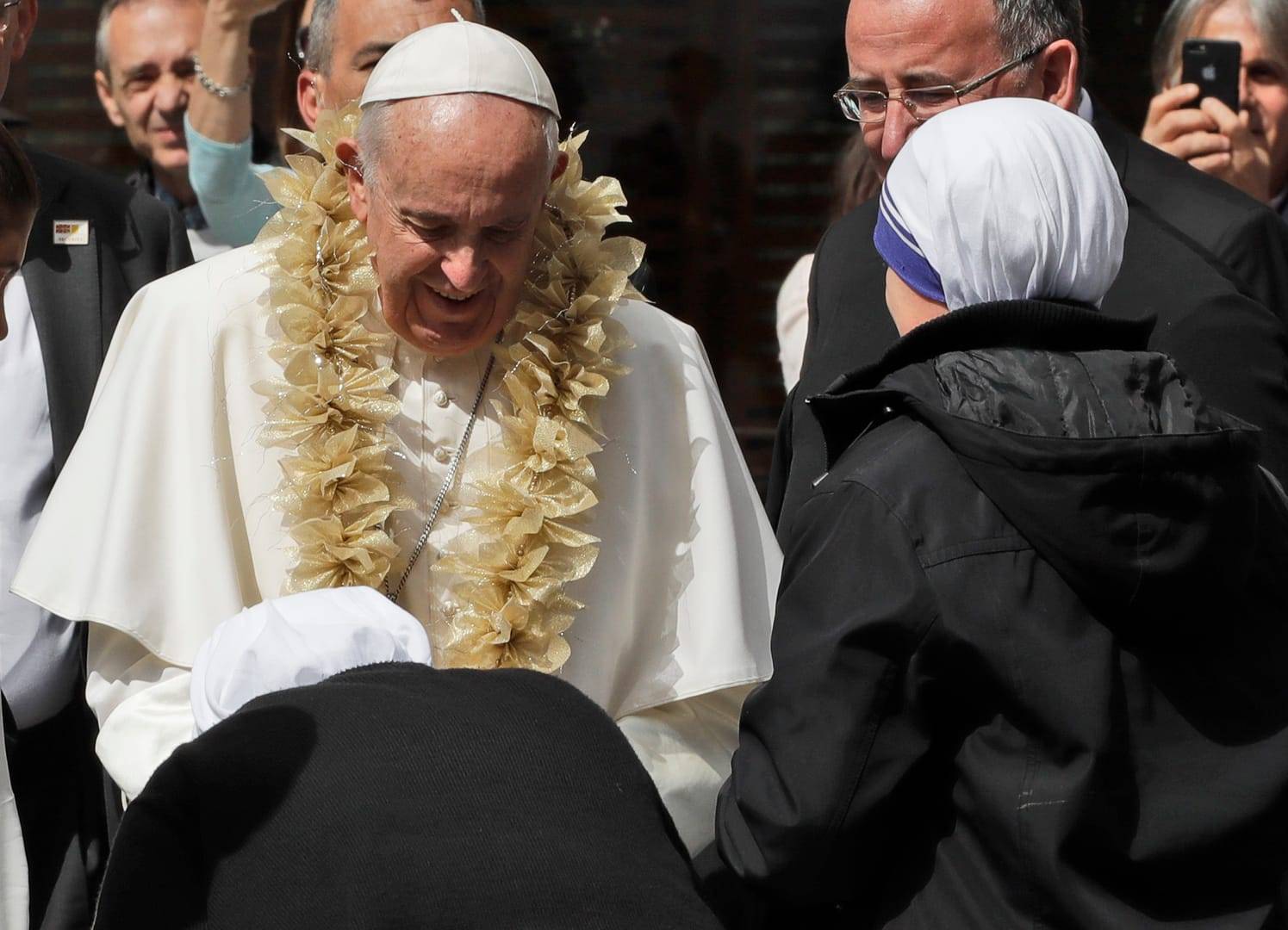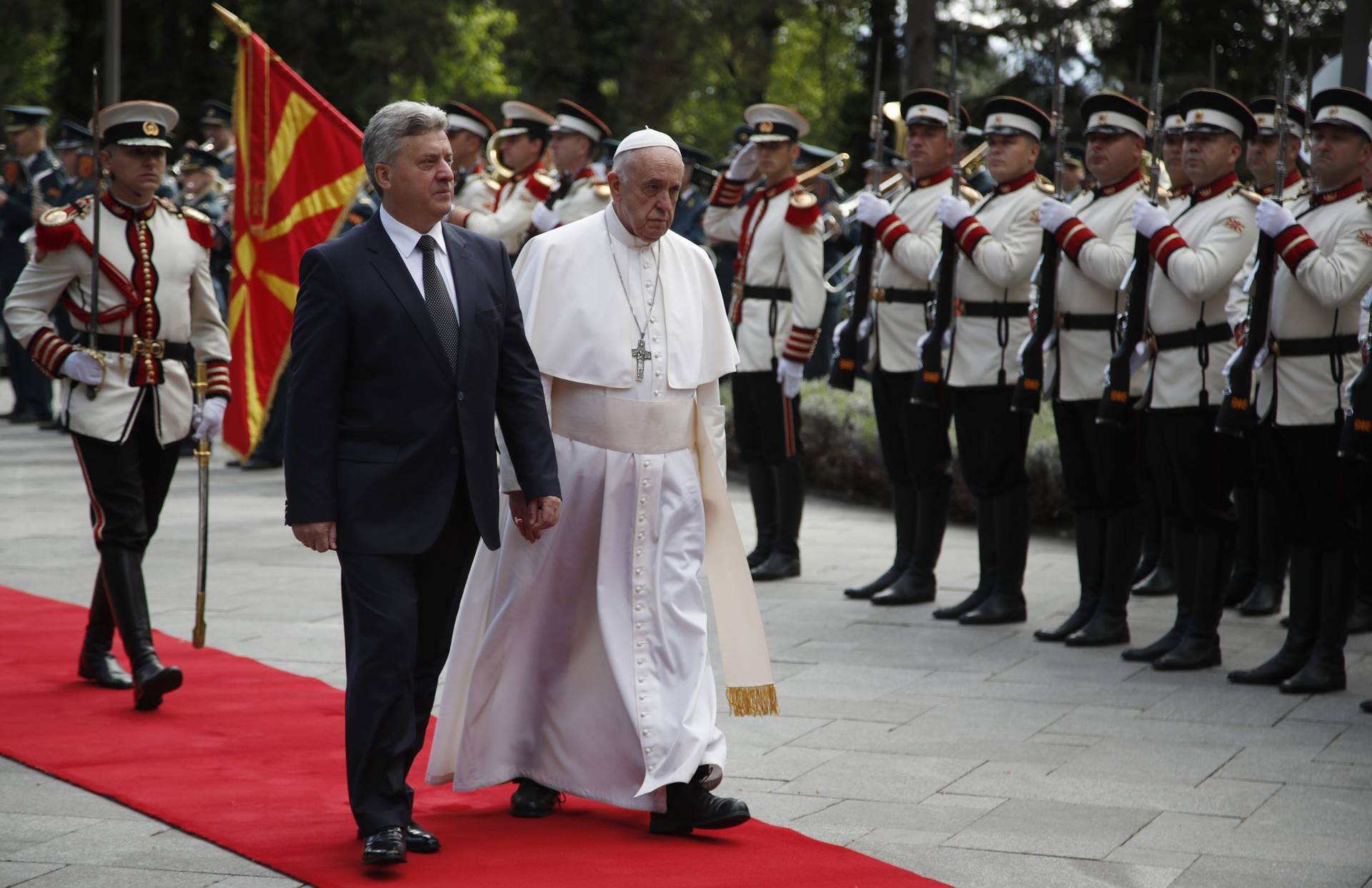ABOARD THE PAPAL PLANE – On his flight back from Macedonia, Pope Francis hailed Canadian humanitarian and theologian Jean Vanier, who died Tuesday, as a “great witness” who fought for those in danger of being aborted due to disability.
In his comments to the press during his May 7 flight from Skopje to Rome, Francis said he called Vanier around a week ago to speak with him before his death, saying that while Vanier could not reply, he listened to everything the pope had to say.
“I would like to express my gratitude for this testimony,” Francis said, calling Vanier “a man who knew how to read the Christian efficiency of the mystery of death, the cross, of sickness, the mystery of those who are disrespected and discarded by the world.”
“He didn’t just work for the least of us, but also for those who, before being born, there is the possibility of condemning them to death,” Francis said, alluding to the fact that many children with disabilities are aborted once their disability is discovered.
Vanier “spent his life like this,” the pope said, adding, “Simply, thanks to him and thanks to God for having given us this man, with such a great witness.”
Born in 1928 in Geneva to Canadian parents, Vanier after abandoning his academic studies met a French priest who focused on the struggles of those suffering from disabilities. In response, he invited a couple of other friends to come live with him and a handful of disabled persons in Trosly-Breuil, France, launching what became the L’Arche movement.
RELATED: With death of Jean Vanier, Catholicism loses a living saint
In 1971, Vanier also co-founded the Faith and Light movement, focused on people with learning disabilities. L’Arche has spread to more than 37 countries, and Faith and Light to roughly 80.
Vanier died from cancer Tuesday morning at the age of 90 in a Paris facility run by the L’Arche community that he founded in 1964.
During his life, he was often compared to Mother Teresa given their work with those on the margins of society and the emphasis they placed on loving the human person, despite their condition.
